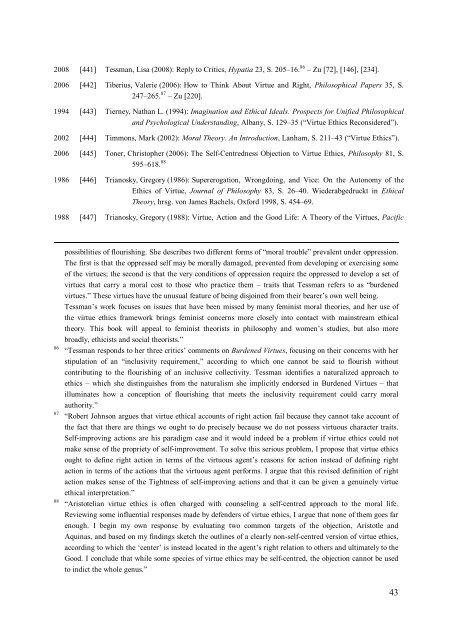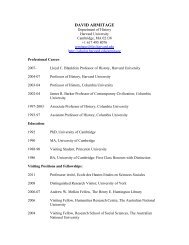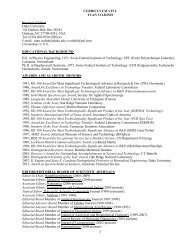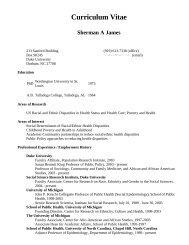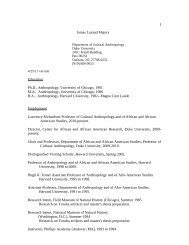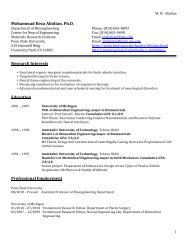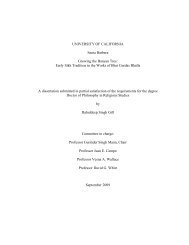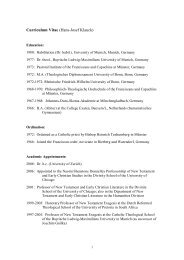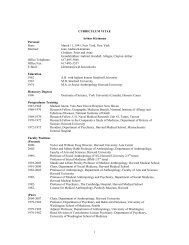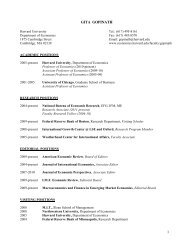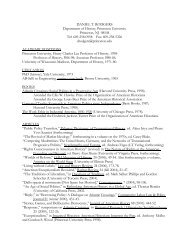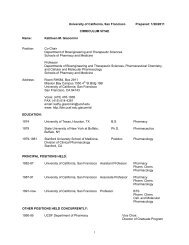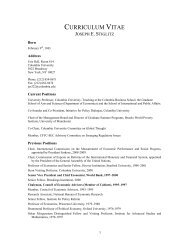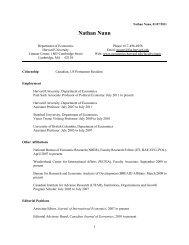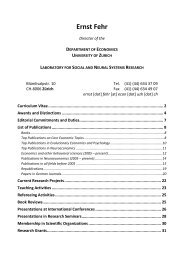Literatur zur Tugendethik Bibliography on Virtue ... - Academic Room
Literatur zur Tugendethik Bibliography on Virtue ... - Academic Room
Literatur zur Tugendethik Bibliography on Virtue ... - Academic Room
- No tags were found...
You also want an ePaper? Increase the reach of your titles
YUMPU automatically turns print PDFs into web optimized ePapers that Google loves.
2008 [441] Tessman, Lisa (2008): Reply to Critics, Hypatia 23, S. 205–16. 86 – Zu [72], [146], [234].2006 [442] Tiberius, Valerie (2006): How to Think About <strong>Virtue</strong> and Right, Philosophical Papers 35, S.247–265. 87 – Zu [220].1994 [443] Tierney, Nathan L. (1994): Imaginati<strong>on</strong> and Ethical Ideals. Prospects for Unified Philosophicaland Psychological Understanding, Albany, S. 129–35 (“<strong>Virtue</strong> Ethics Rec<strong>on</strong>sidered”).2002 [444] Timm<strong>on</strong>s, Mark (2002): Moral Theory. An Introducti<strong>on</strong>, Lanham, S. 211–43 (“<strong>Virtue</strong> Ethics”).2006 [445] T<strong>on</strong>er, Christopher (2006): The Self-Centredness Objecti<strong>on</strong> to <strong>Virtue</strong> Ethics, Philosophy 81, S.595–618. 881986 [446] Trianosky, Gregory (1986): Supererogati<strong>on</strong>, Wr<strong>on</strong>gdoing, and Vice: On the Aut<strong>on</strong>omy of theEthics of <strong>Virtue</strong>, Journal of Philosophy 83, S. 26–40. Wiederabgedruckt in EthicalTheory, hrsg. v<strong>on</strong> James Rachels, Oxford 1998, S. 454–69.1988 [447] Trianosky, Gregory (1988): <strong>Virtue</strong>, Acti<strong>on</strong> and the Good Life: A Theory of the <strong>Virtue</strong>s, Pacific868788possibilities of flourishing. She describes two different forms of “moral trouble” prevalent under oppressi<strong>on</strong>.The first is that the oppressed self may be morally damaged, prevented from developing or exercising someof the virtues; the sec<strong>on</strong>d is that the very c<strong>on</strong>diti<strong>on</strong>s of oppressi<strong>on</strong> require the oppressed to develop a set ofvirtues that carry a moral cost to those who practice them – traits that Tessman refers to as “burdenedvirtues.” These virtues have the unusual feature of being disjoined from their bearer’s own well being.Tessman’s work focuses <strong>on</strong> issues that have been missed by many feminist moral theories, and her use ofthe virtue ethics framework brings feminist c<strong>on</strong>cerns more closely into c<strong>on</strong>tact with mainstream ethicaltheory. This book will appeal to feminist theorists in philosophy and women’s studies, but also morebroadly, ethicists and social theorists.”“Tessman resp<strong>on</strong>ds to her three critics’ comments <strong>on</strong> Burdened <strong>Virtue</strong>s, focusing <strong>on</strong> their c<strong>on</strong>cerns with herstipulati<strong>on</strong> of an “inclusivity requirement,” according to which <strong>on</strong>e cannot be said to flourish withoutc<strong>on</strong>tributing to the flourishing of an inclusive collectivity. Tessman identifies a naturalized approach toethics – which she distinguishes from the naturalism she implicitly endorsed in Burdened <strong>Virtue</strong>s – thatilluminates how a c<strong>on</strong>cepti<strong>on</strong> of flourishing that meets the inclusivity requirement could carry moralauthority.”“Robert Johns<strong>on</strong> argues that virtue ethical accounts of right acti<strong>on</strong> fail because they cannot take account ofthe fact that there are things we ought to do precisely because we do not possess virtuous character traits.Self-improving acti<strong>on</strong>s are his paradigm case and it would indeed be a problem if virtue ethics could notmake sense of the propriety of self-improvement. To solve this serious problem, I propose that virtue ethicsought to define right acti<strong>on</strong> in terms of the virtuous agent’s reas<strong>on</strong>s for acti<strong>on</strong> instead of defining rightacti<strong>on</strong> in terms of the acti<strong>on</strong>s that the virtuous agent performs. I argue that this revised definiti<strong>on</strong> of rightacti<strong>on</strong> makes sense of the Tightness of self-improving acti<strong>on</strong>s and that it can be given a genuinely virtueethical interpretati<strong>on</strong>.”“Aristotelian virtue ethics is often charged with counseling a self-centred approach to the moral life.Reviewing some influential resp<strong>on</strong>ses made by defenders of virtue ethics, I argue that n<strong>on</strong>e of them goes farenough. I begin my own resp<strong>on</strong>se by evaluating two comm<strong>on</strong> targets of the objecti<strong>on</strong>, Aristotle andAquinas, and based <strong>on</strong> my findings sketch the outlines of a clearly n<strong>on</strong>-self-centred versi<strong>on</strong> of virtue ethics,according to which the ‘center’ is instead located in the agent’s right relati<strong>on</strong> to others and ultimately to theGood. I c<strong>on</strong>clude that while some species of virtue ethics may be self-centred, the objecti<strong>on</strong> cannot be usedto indict the whole genus.”43


